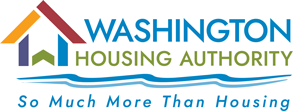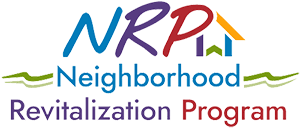Housekeeping Guide
Guide to Safe, Clean, and Healthy Living Washington Housing Authority
Cleaning Your Home
General Cleaning
As a tenant, you are responsible for keeping your house clean. Cleaning your house regularly is very important as it keeps your family healthy.
Some areas of your home, such as the kitchen countertops and sink, should be cleaned every day. Other areas can be cleaned weekly (such as floors and bathrooms) or monthly (such as fan blades and wiping cabinets).
Your Housing Manager and Inspector will check how clean your house is during regular inspections. Below is a checklist or areas to clean regularly.
Countertops and Sinks
- Wipe kitchen countertops and sinks daily, especially after you have been preparing food.
- Remember: do not use the kitchen cloth anywhere else so germs do not spread.
- Don't put any food or other items down the drain as this will clog the drain.
Stove and Oven
- The stovetop, inside, and outside of the oven should be cleaned regularly to remove food and grease.
- Use an oven cleaner to remove grease from the inside of the oven.
- Only use sauce pans or proper cooking trays. Don't put plastic or fabric in the oven or on the stove, as this can cause a fire and other damage.
- Never let anyone stand or sit on the open oven door.
- Make sure oven racks stay in the oven; don't use them for outside cooking.
Cabinets and Shelving
- Wipe out cabinets and shelving, especially ones that you keep food in. This will help stop pests and bugs.
- Food in cabinets should be kept in closed containers or sealed bags.
Bathroom
- Bathrooms and toilets must be kept clean and well maintained. This will stop mold from growing and germs from spreading.
- Wipe the sink regularly.
- Don't put any rubbish or items down the drain.
- Remove hair from the drain so it doesn't get clogged.
- Clean around the taps.
- Wipe the bath and shower walls.
- If there is mold, consider using white vinegar or a bathroom cleaner.
- Regularly sweep and mop the floor.
- Wipe up spills or slippery areas immediately.
Toilet
- Scrub the toilet with a toilet brush and disinfectant, white vinegar, or toilet cleaner to keep it clean and stop germs from spreading.
- Wipe over the outside of the toilet and cistern with a cloth and disinfectant.
- Don't flush anything besides toilet paper down the toilet. Nappies, other personal products, and rubbish must never be flushed down the toilet. They will clog the drain and stop the toilet from working properly.
Floors
- Sweep and mop the floors in all rooms regularly.
- Remember to rinse and dry the mop after it is used to stop mold from growing.
Dusting
- Dust away any spider webs as needed.
Windows and Blinds
- Clean all the windows and blinds regularly.
- Report any cracked or chipped window glass immediately.
- Don't let anyone, or your pets, put holes in the window screens.
Trash Bin
- Always put rubbish in the trash bin.
- Pull the trash bin out so it can be emptied on "trash day."
Walls, Doors, Countertops, Light Switches and Powerpoints
- Wipe dirty marks off walls, doors and cabinets
- Dust all the light switches and powerpoints:
- If they are dirty, you can wipe over them with a cloth.
- Do not put water on them or spray cleaners on them.
Bugs and Pest
There are several things you can do to keep pests, such as cockroaches, ants, insects, ticks and fleas, under control. These include:
- keep your apartment clean
- put rubbish in the trash bin and make sure the bin is emptied and cleaned regularly
- make sure food that is in the cabinets is in sealed containers or bags
- don't store, eat or cook food in bedrooms
- keep doors closed and make sure window screens do not have holes
If you have problems with bugs and pests, contact your Housing Manager.
Cleaning Products and Tools
- Toilet cleaner and disinfectant. White vinegar is also an effective cleaner and is cheap to buy and safe to use.
- Vinegar and bicarb are cheap, good cleaning products.
- You can buy products made to clean things, such as ovens, windows, showers, bathrooms, and floors. These products can be poisonous and can make people very sick. Always keep these products in a locked cabinet or high off the ground so young children cannot get to them. Most cleaning can be done with white vinegar, which is cheap to buy and safe to use.
- Cleaning cloths - So you don't spread germs, always use one cleaning cloth in the kitchen, a different one in the bathroom, and a different one on the floor and walls. Using different colored cloths will help people remember where each cloth can be used.
Trash
- You must keep your apartment and yard free of trash.
- Each apartment is furnished with a trash bin that should be kept outside of the house.
- Keep smaller trash bins inside; make sure you empty them on a regular basis into the outside trash bin. All trash should be in trash bags.
- Remember to pull the trash bin to the street on your trash pick-up day. After pick-up return bin back to your apartment.
- To keep flies and maggots out of your trash bin, keep the lid closed all the time and wash the bin each time it is emptied.
Housekeeping Inspections
- Residents who "fail" an inspection due to housekeeping will be issued a copy of the inspection report with items that need to be corrected. A re-inspection will be conducted within 10 calendar days by housing management staff.
- Failed inspections could result in Lease Termination.
Tenant Damages
- Tenant will be billed for damages to the unit beyond normal wear and tear.
This is a guide to help you understand what you need to do to keep your house safe, clean, and healthy.


